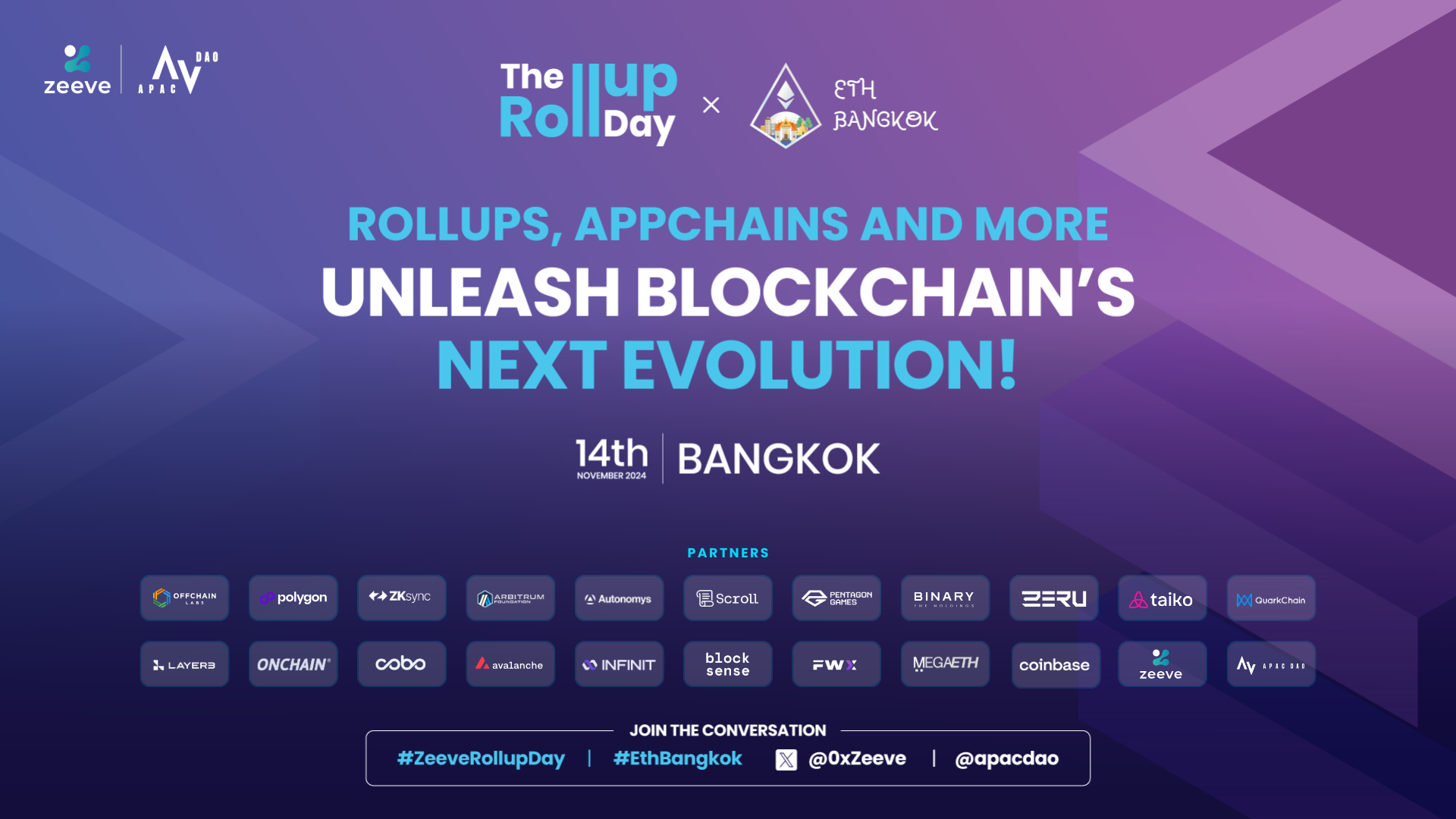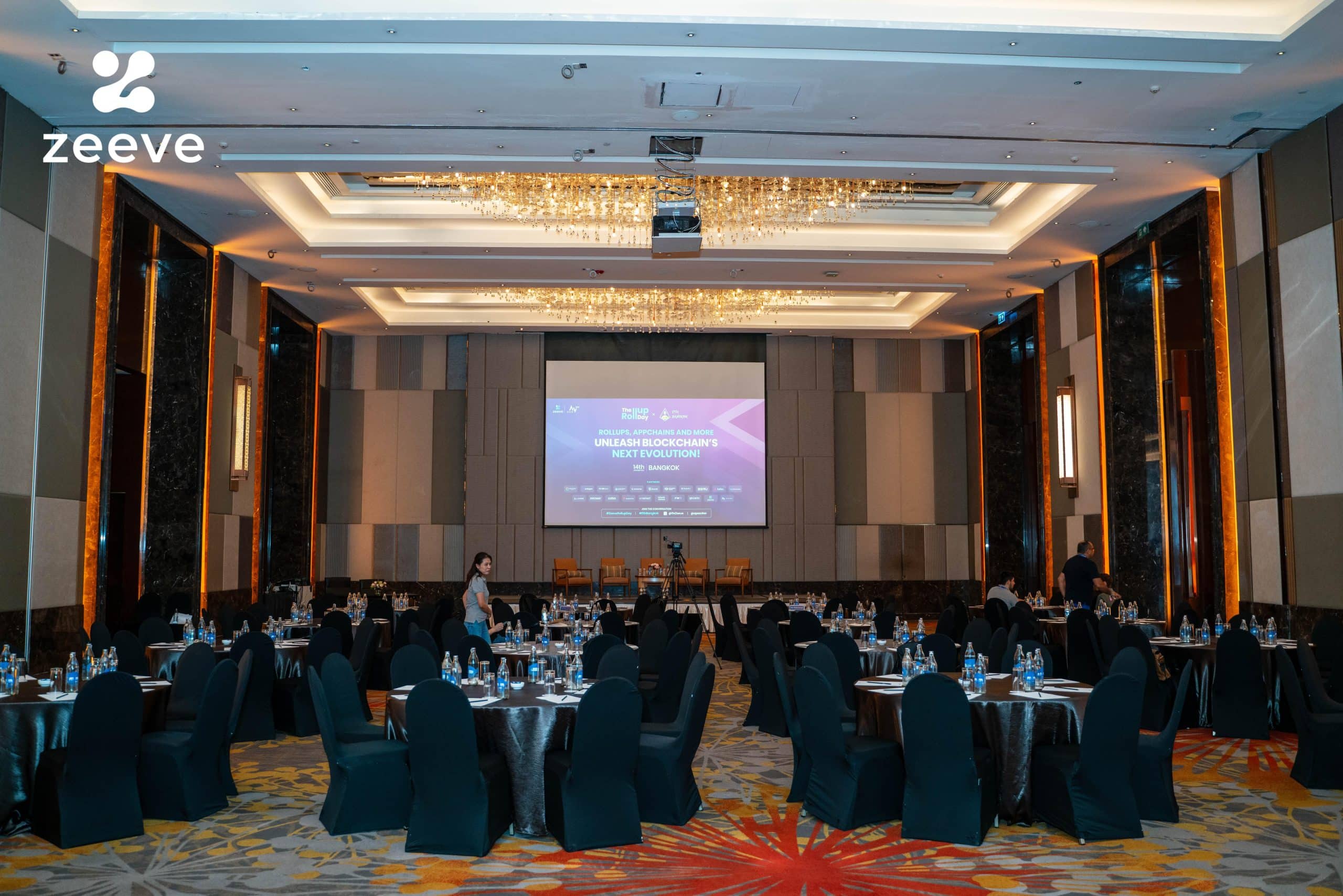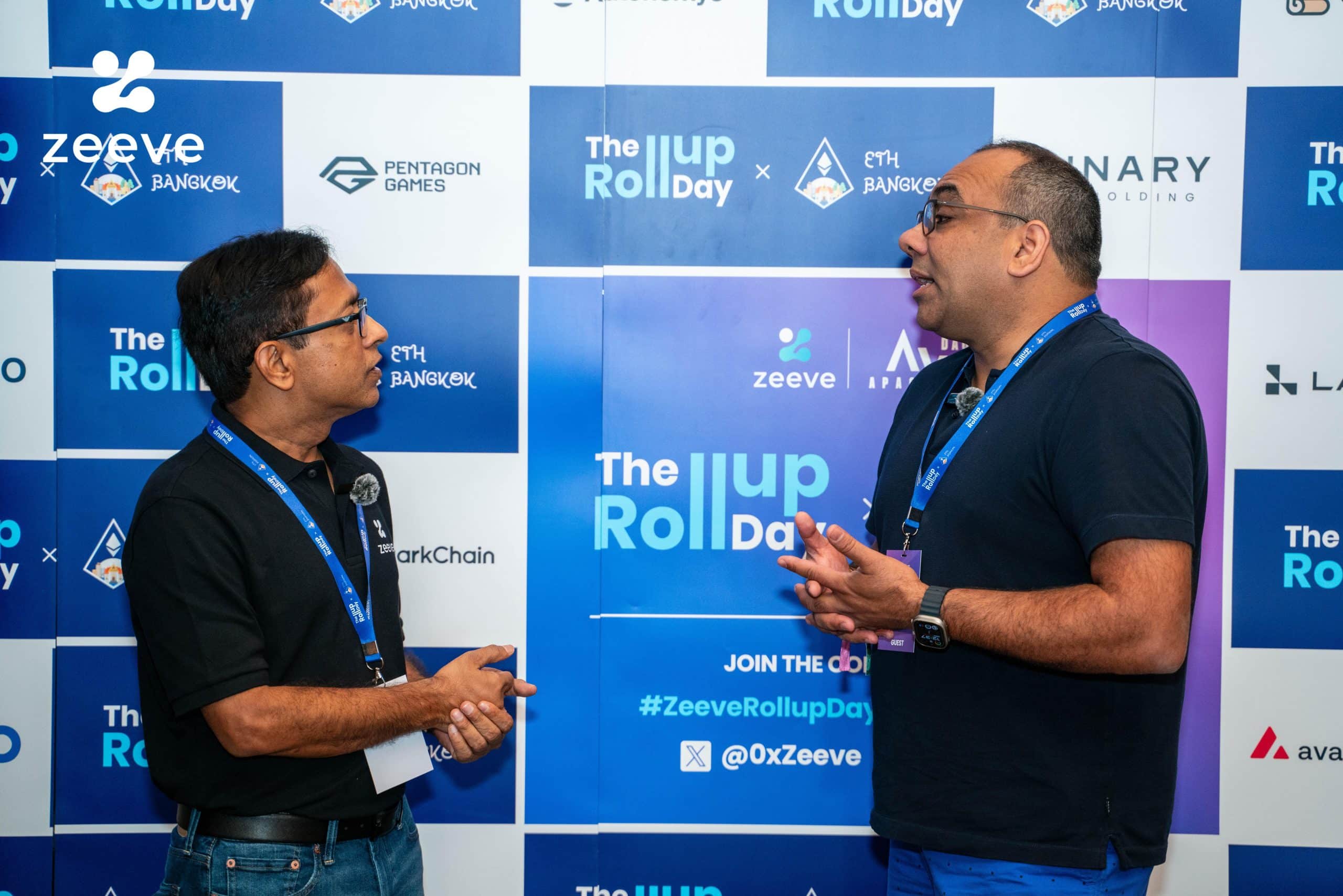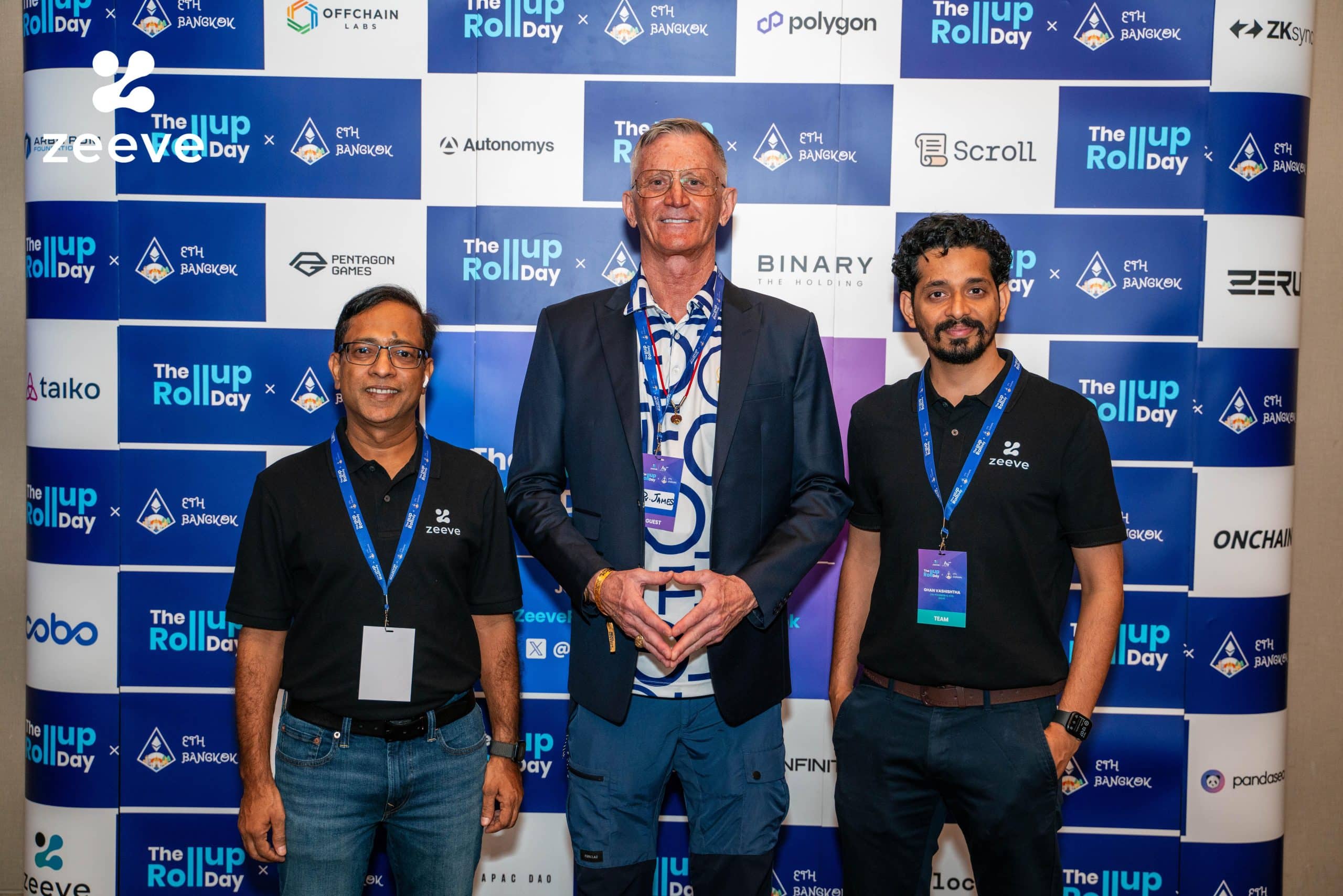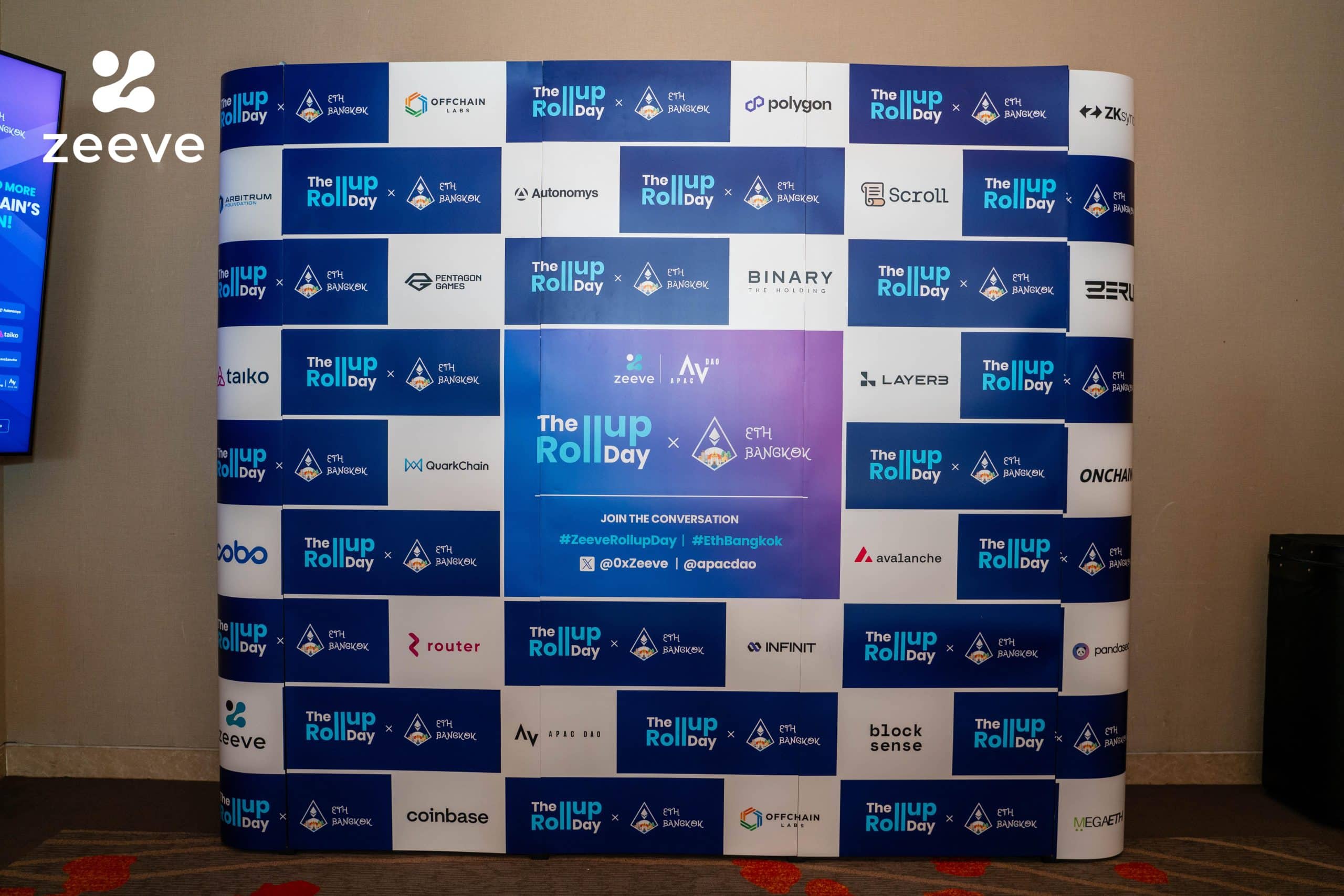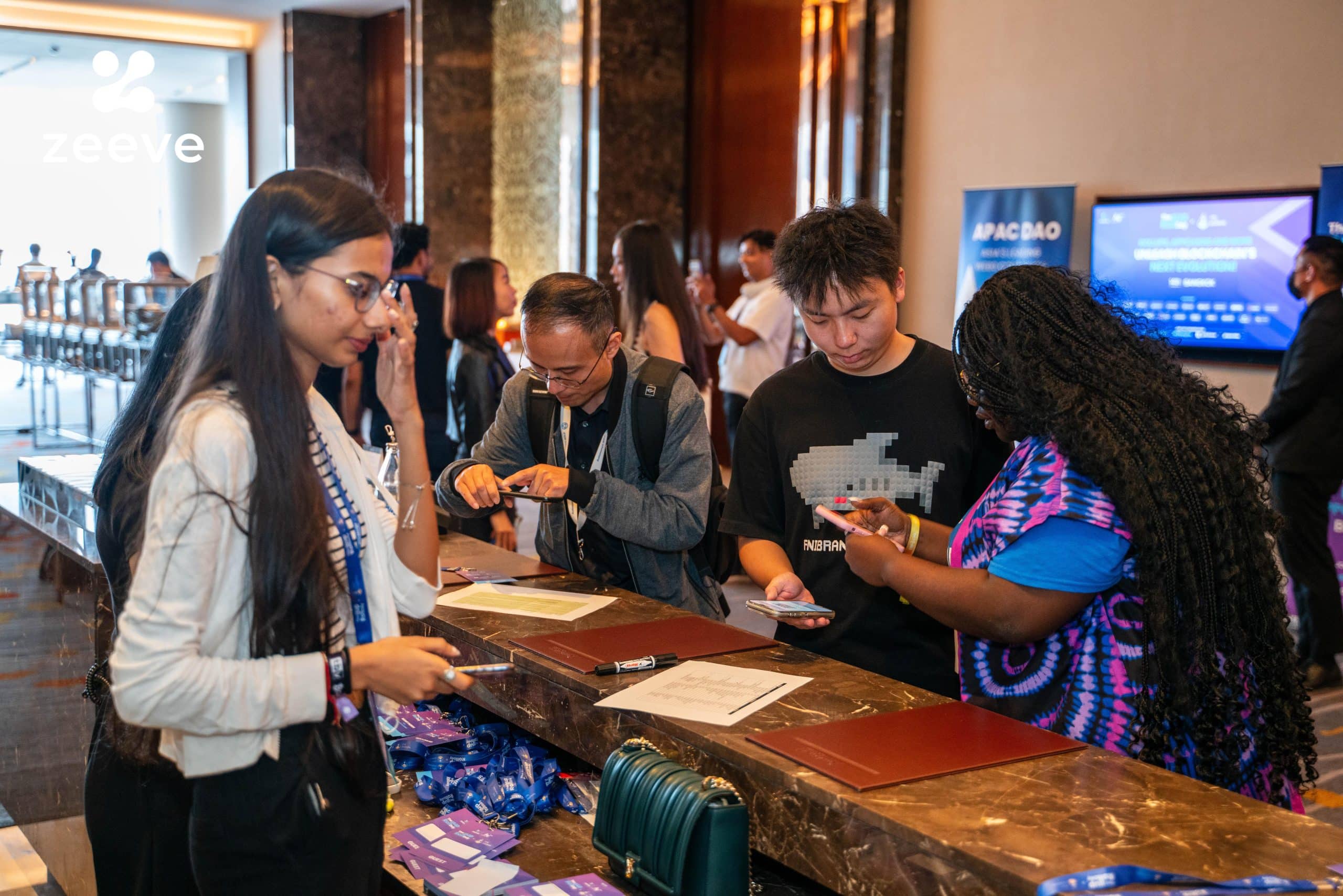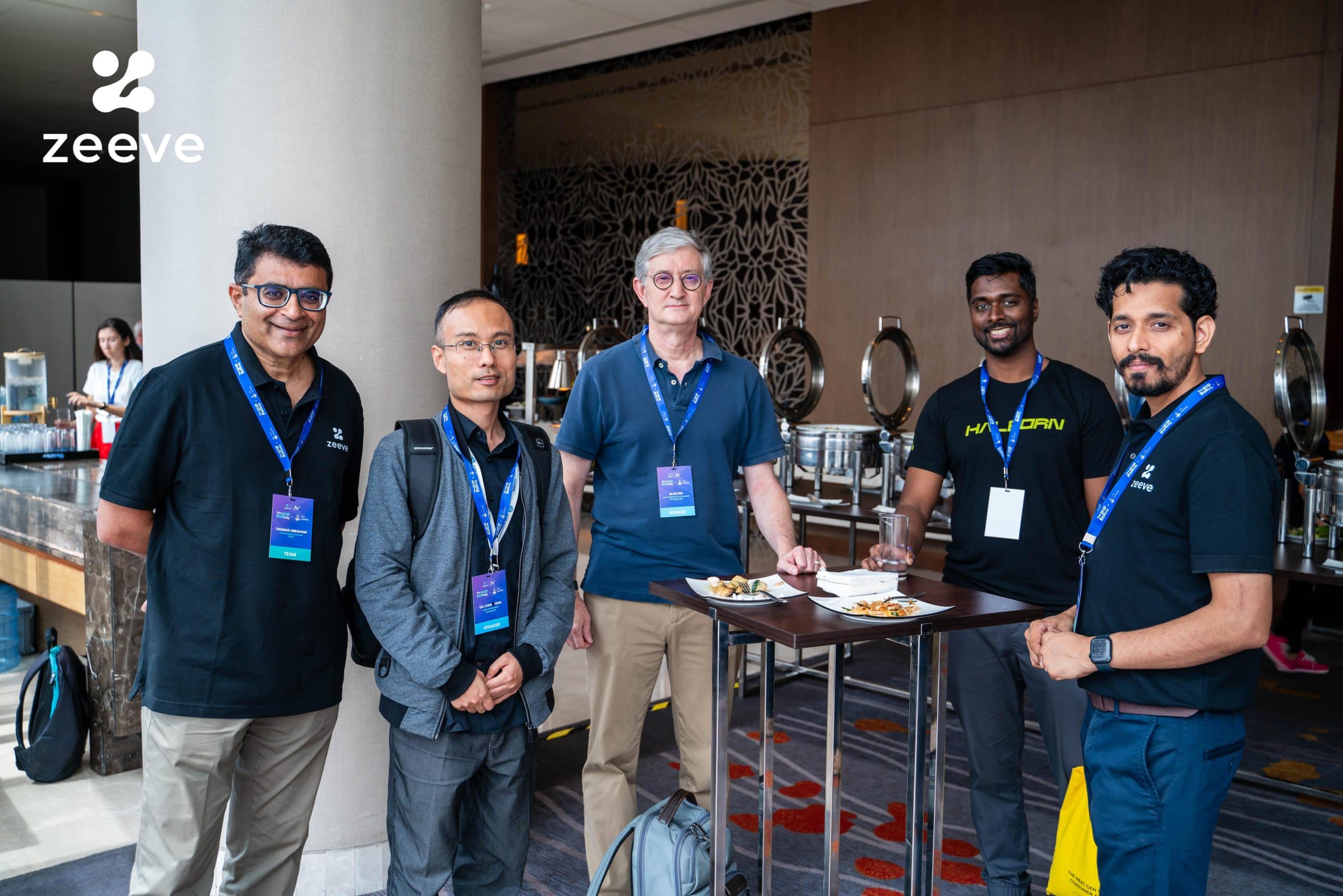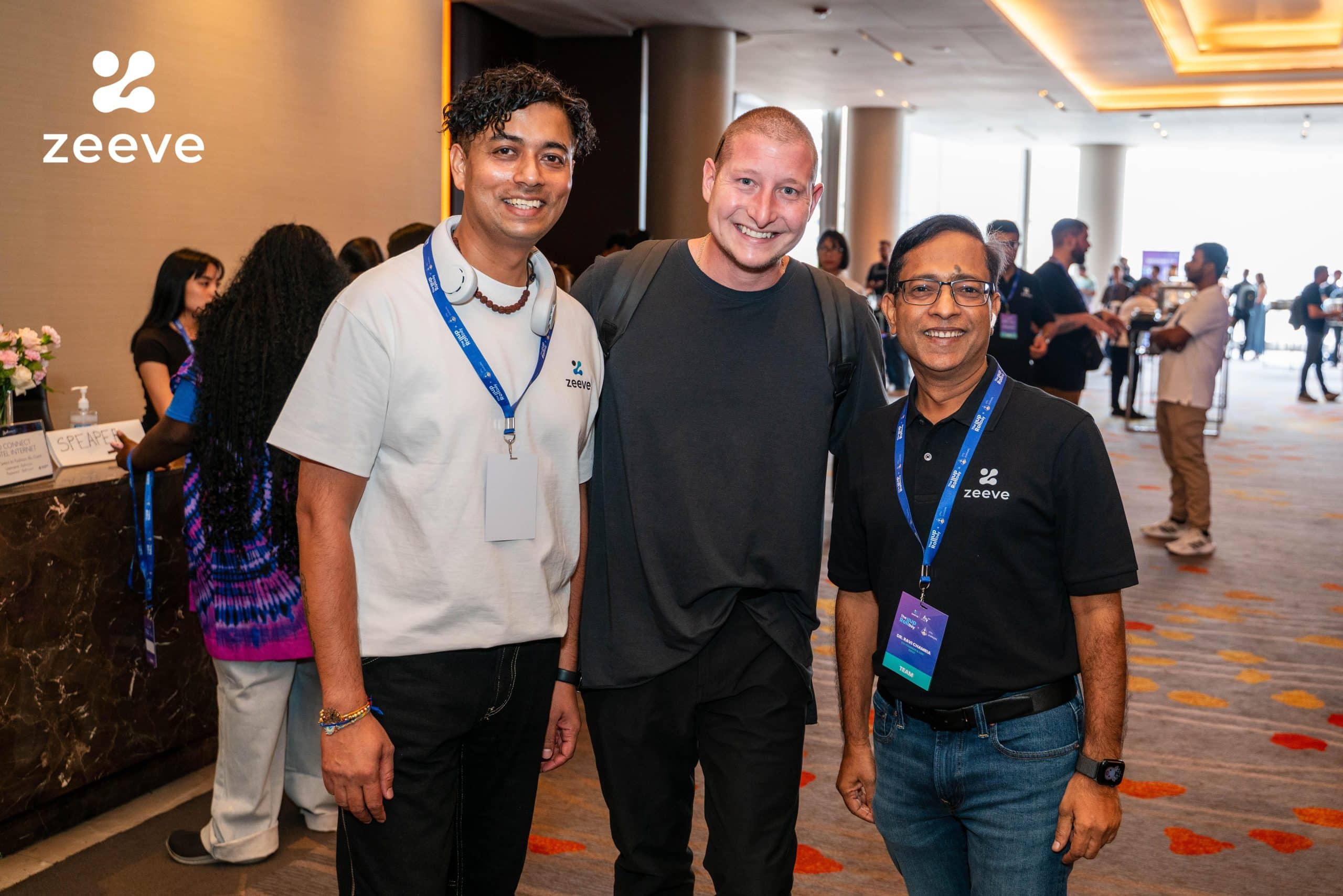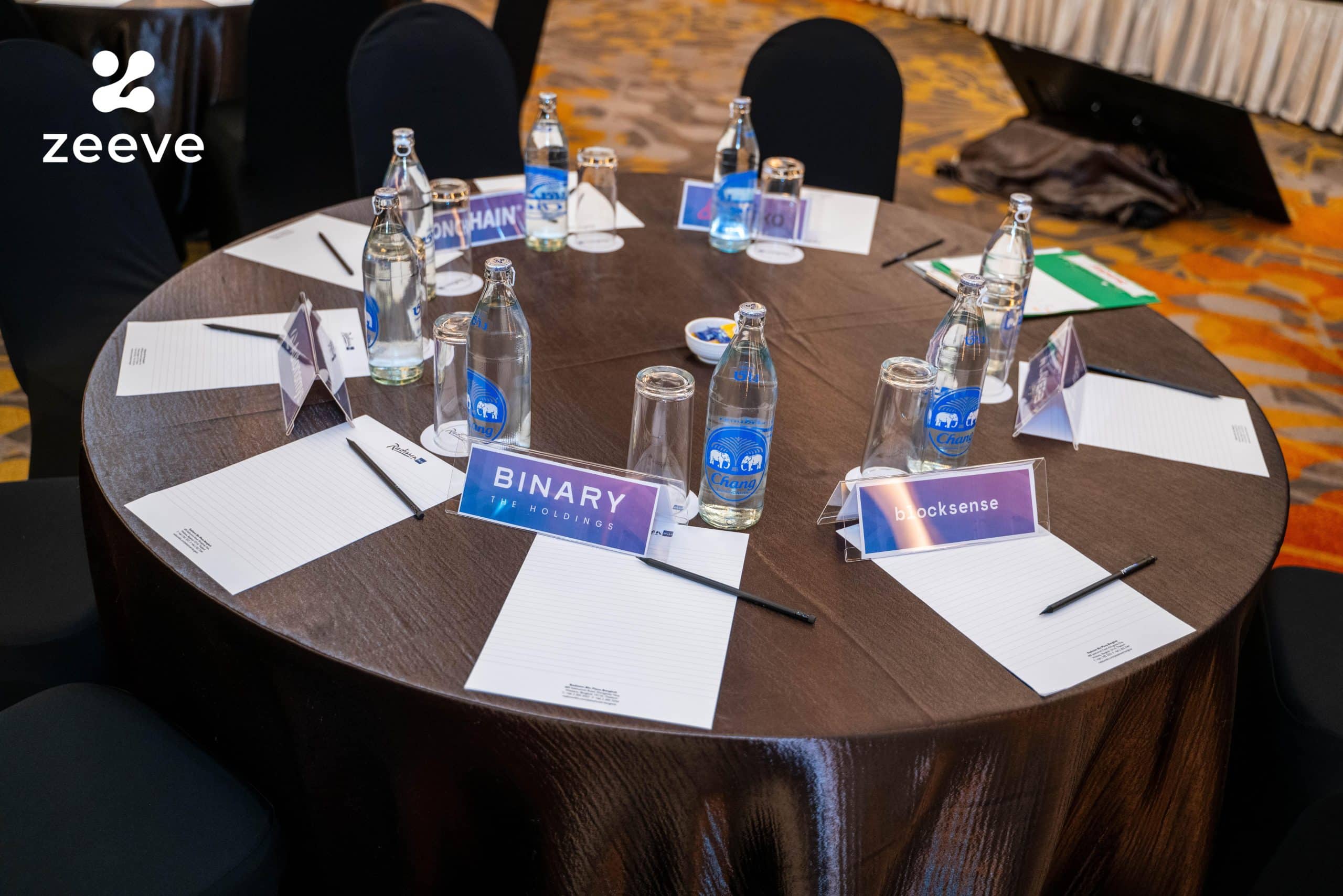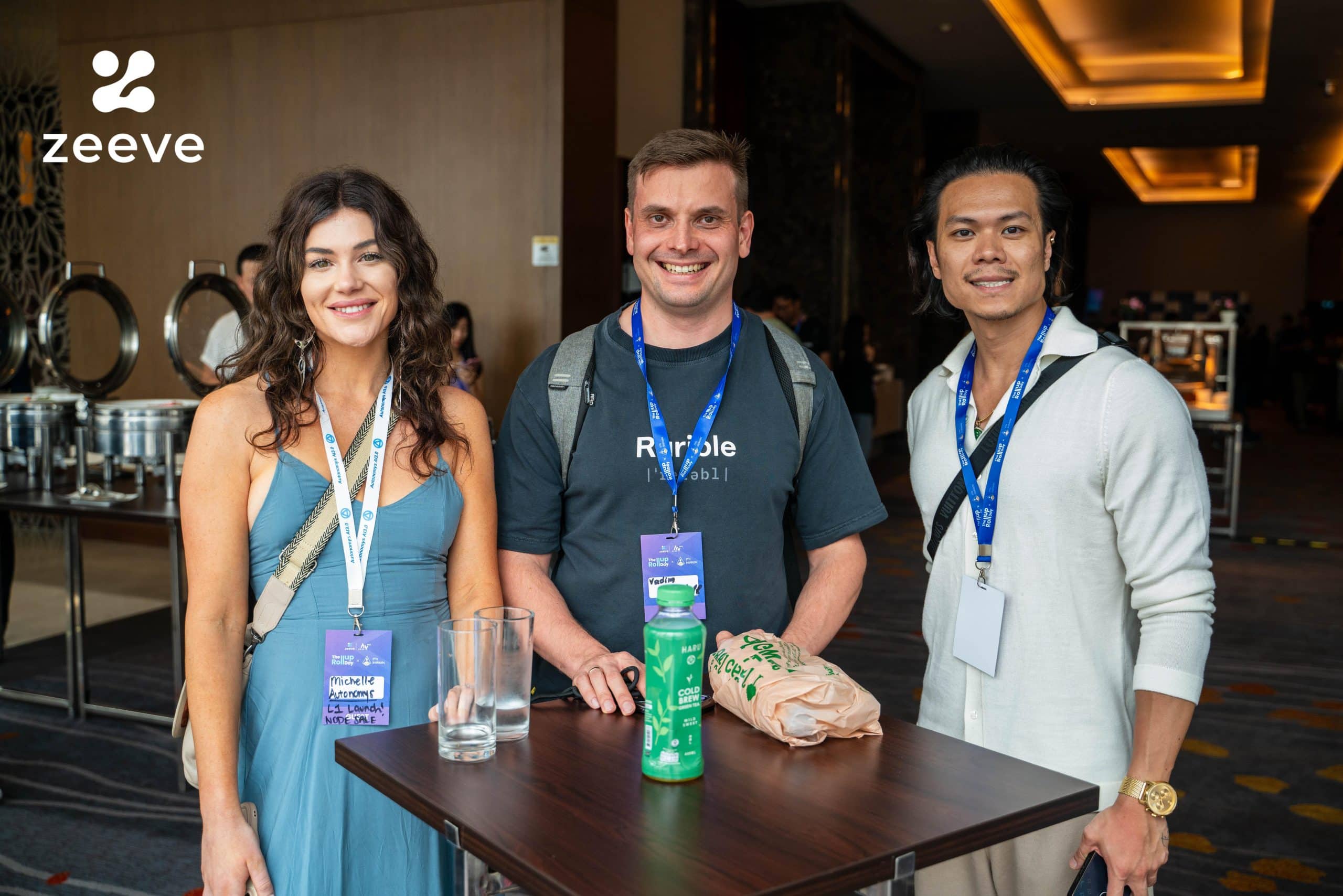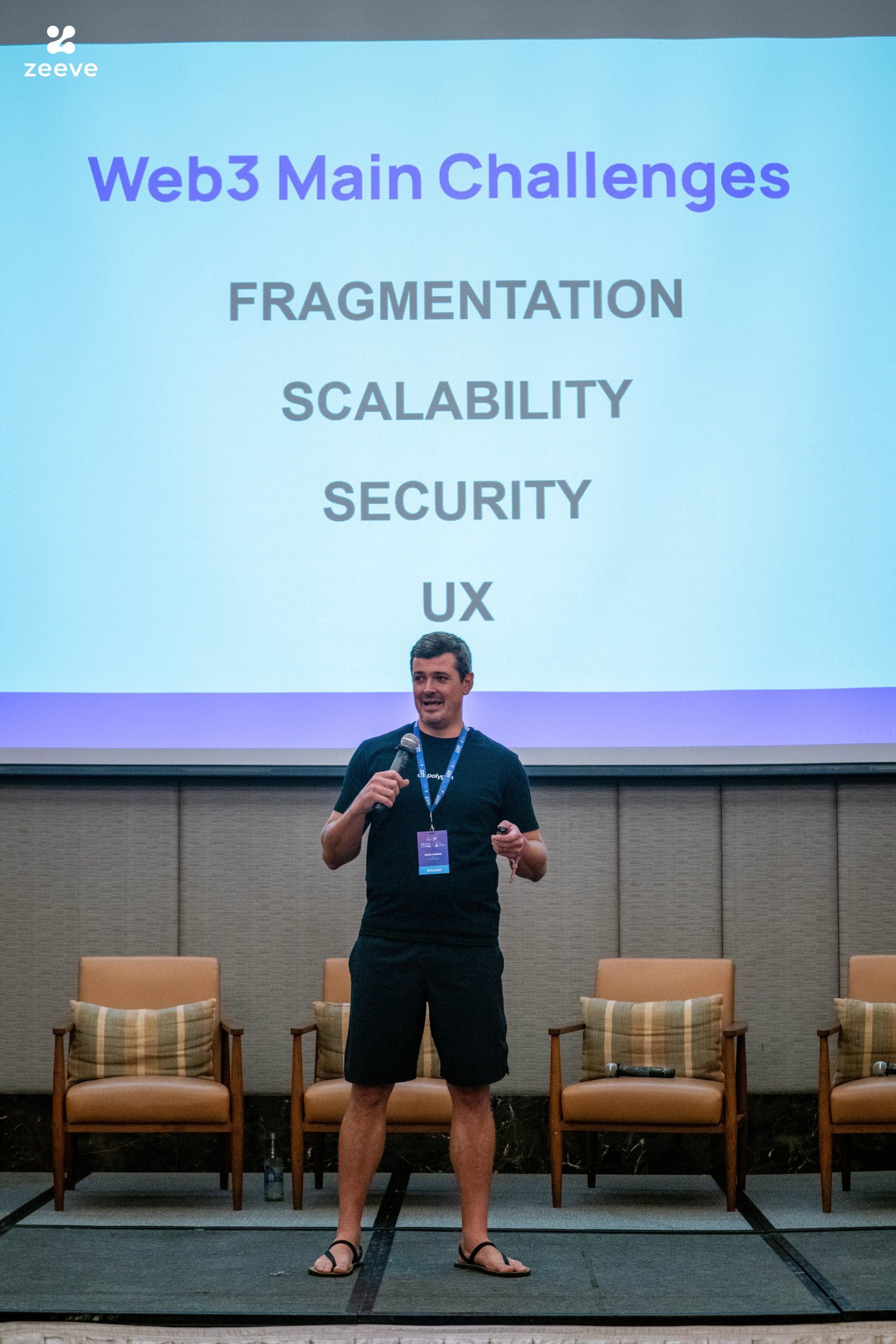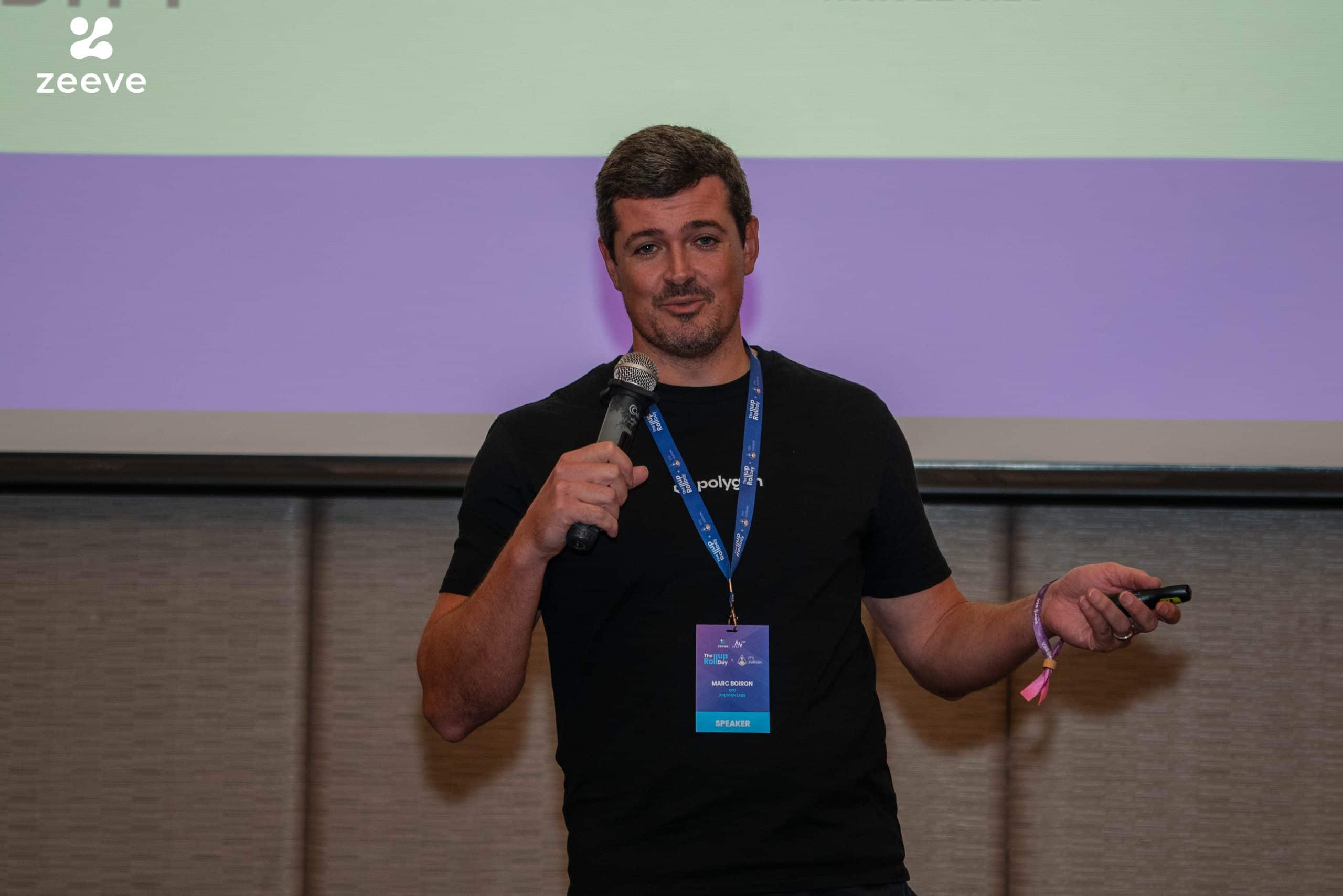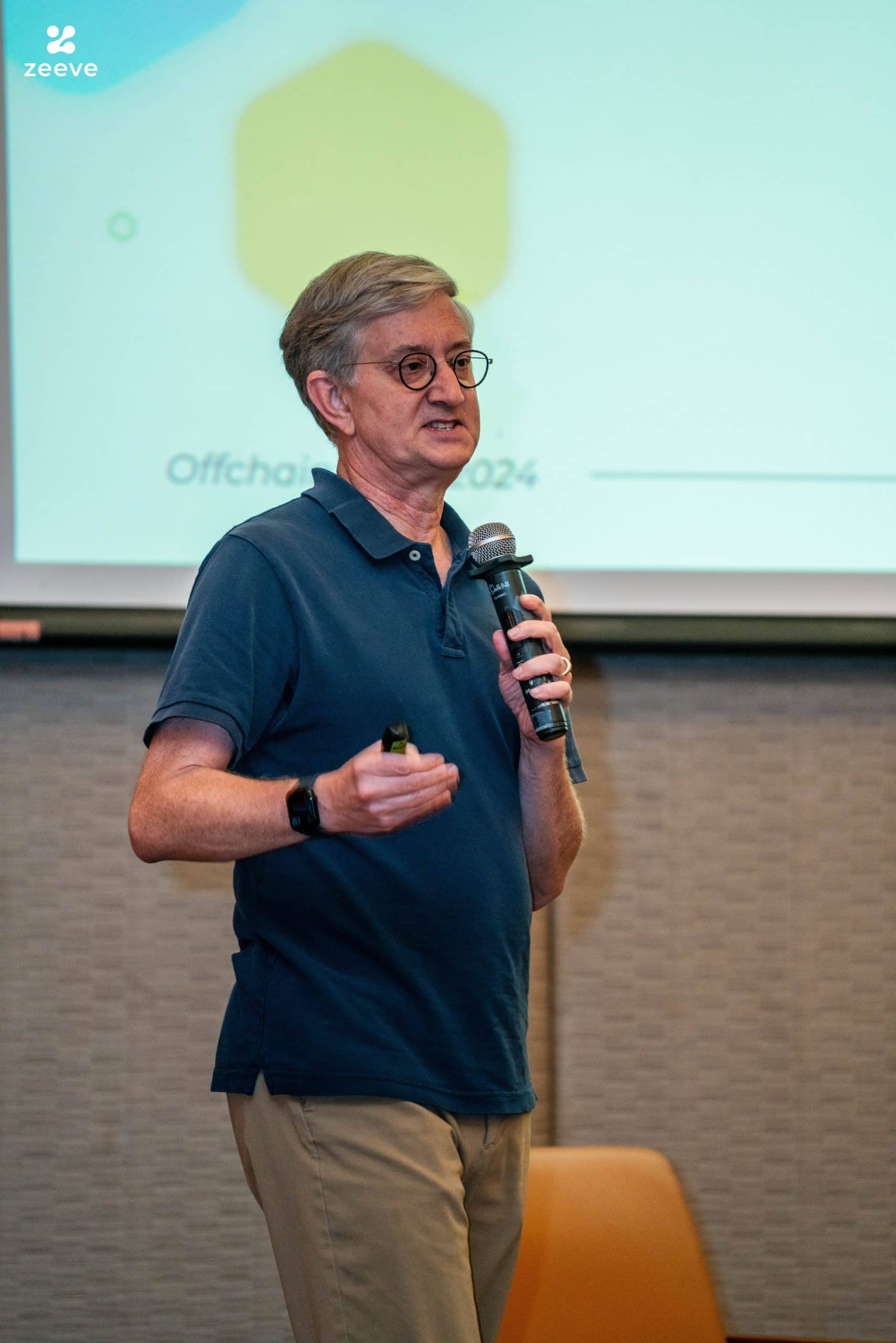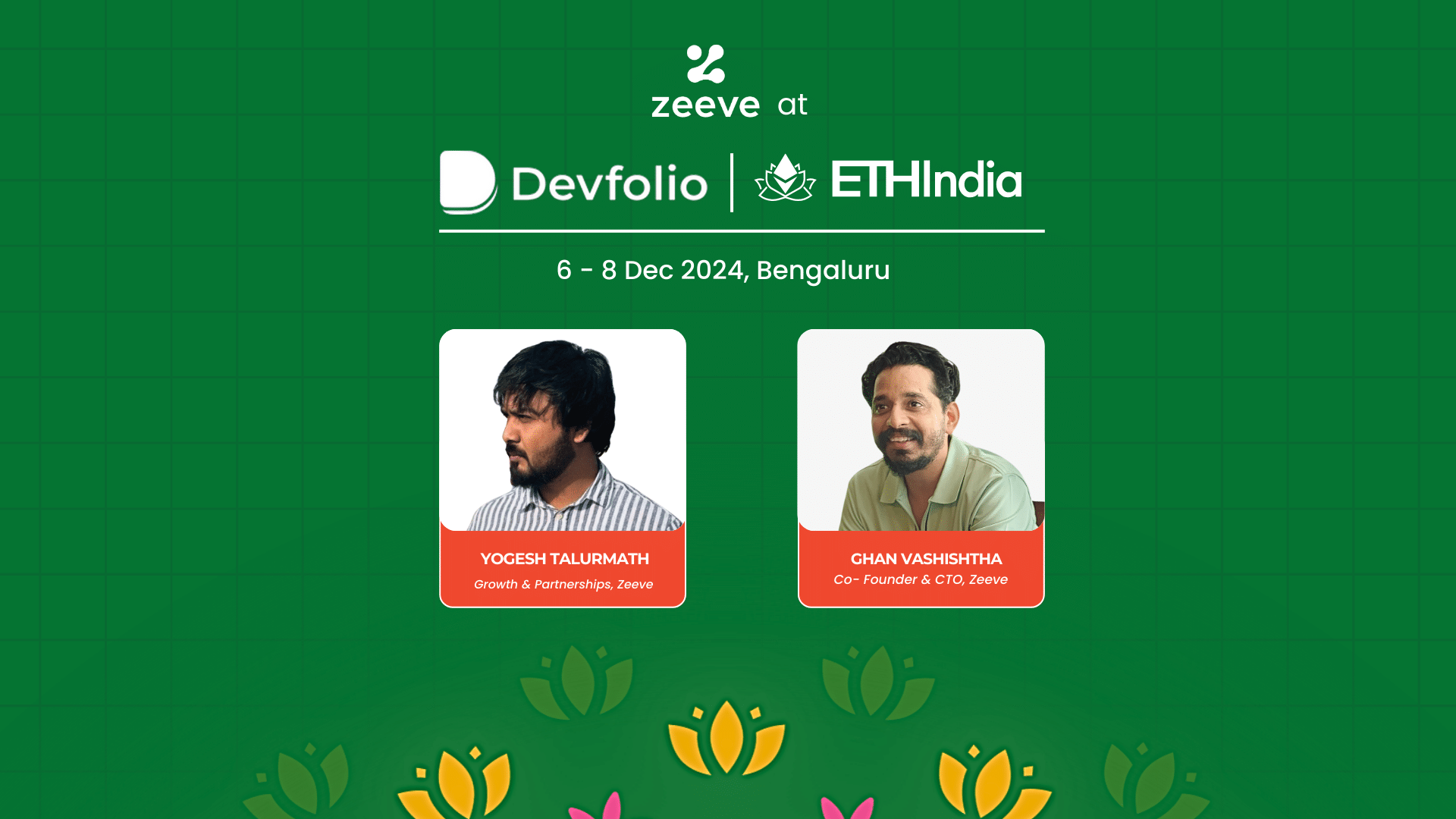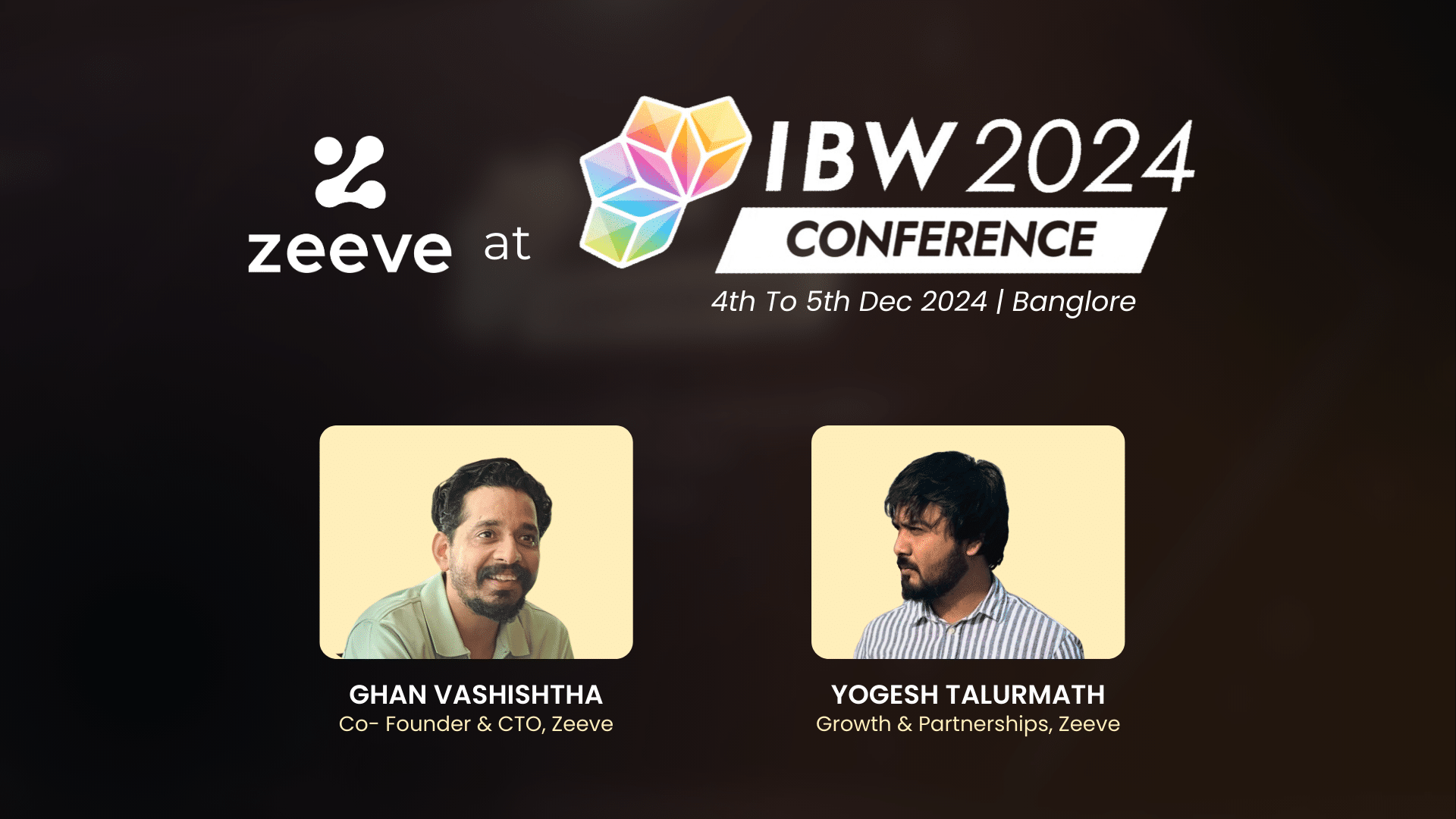Bangkok. The city of smiles, spicy food, and…well, now a city of blockchain talks. On November 14th, 2024, the Radisson Blu Plaza was buzzing with the energy of Web3 builders, investors, and enthusiasts gathered for Zeeve and APAC DAO’s The Rollup Day.
Thomas, Zeeve’s Chief Revenue Officer, started things off with the perfect mix of energy and humor, poking fun at Bangkok traffic—“It’s not a bug, it’s a feature!” He thanked attendees for choosing The Rollup Day over the city’s many distractions (those rooftop bars do tempt you) before handing over to Nicole from APAC DAO, who co-hosted the event.
Nicole set the stage with APAC DAO’s journey and ETH Bangkok’s vibrant community of builders. She connected the dots between Southeast Asia’s fast-growing Web3 scene and rollup innovation, sprinkling in names like Ripple and Ethereum’s Road to Devcon initiative.
The day’s first keynote,
Ed Felten, chief scientist and co-founder of Arbitrum, delivered a powerful keynote that went beyond the hype. His “six big moves” for the Web3 community weren’t just theoretical concepts; they were practical, actionable steps toward onboarding the next billion users. From building in layers (mirroring the internet’s success) to achieving true decentralization, Felten’s insights were a clear call to action for builders in the room and beyond.
The momentum carried straight into the 5 back to back panels,
Here Are some Highlights:
- “Real adoption comes from solving real problems.” The use cases panel brought this home with Binary Holdings showcasing how tokenized loyalty programs are already helping enterprises slash traditional program costs by 40%. When infrastructure meets actual business needs, magic happens.
- The protocol debate sparked one of the day’s most insightful exchanges. “Different problems need different solutions” became the unofficial consensus, with representatives from Arbitrum, Polygon, and ZK Chains acknowledging that the future isn’t winner-takes-all, but rather about finding the right tool for each job.
- “Decentralized AI needs decentralized infrastructure first.” The DeAI panel cut through the hype with Fluence and Impossible Cloud presenting actual metrics on compute costs and data accessibility. Hypersphere Ventures added the sobering investor perspective: “The bottlenecks aren’t just technical – they’re economic.”
- The infrastructure discussion crystallized around a key question: “Are we building for today’s problems or tomorrow’s scale?” This sparked a fascinating debate about modular blockchains and the role of sovereign chains in Web3’s future architecture.
- “DeFi’s next chapter will be written on rollups.” The DeFi panel brought fresh perspectives on how rollup technology could revitalize the space, with concrete examples of improved capital efficiency and reduced transaction costs driving the conversation.
If you want to catch all the insights, the debates, head over to our YouTube channel for the full 3.5-hour video recording. It’s a glimpse into the future of Web3, straight from the builders shaping it.
Here comes the day’s last keynote:
The energy was palpable, even as our phones started to succumb to the long day and intense brainpower. (Three phones died on stage – it was a digital tragedy). But everyone was eagerly waiting for the CEO Of polygon to come to stage.
The AggLayer Talk:
Mark Boyron, the present CEO of Polygon Labs, gave a compelling argument for the Agg Layer, a project with the ambitious goal of uniting all of Web3 – Ethereum, Cosmos, and everyone in between. Sub-5-second cross-chain transactions and unified bridges – these could very well change the game.
The closing panel had a lighter tone, with rapid-fire questions keeping the audience on its toes. Cats vs. dogs? Thai food vs. Italian? Hot wallets or cold wallets? It was a fun way to end the day and a reminder that even in the serious talk of blockchains, there’s always room for a little levity.

